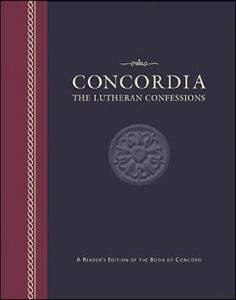John 3:16 has been called the gospel in a nutshell—and for good reason. In that one verse we’re told all that we need to know for our salvation. God loves us. He sent his son to die for us. Believe it. So why do we need any further statements of belief?

Throughout the history of the Christian Church, errors have crept in challenging basic beliefs established in God’s Word—including that Christ is true God and the concept of the Trinity, that God is in fact Father, Son, and Holy Spirit. The early church fathers drafted creeds, or statements of belief, to clarify these biblical truths. As WELS Lutherans, we hold to three main creeds that have been the pillars of Christianity for centuries: the Apostles’ Creed, the Nicene Creed, and the Athanasian Creed.
In the 16th century, Martin Luther and other reformers addressed the false teachings and practices of the Roman Catholic Church. Luther came to see that sinners are saved by the grace of God as a result of Jesus Christ’s perfect life and perfect death on the cross—not through any merit or effort of their own. Luther and others authored the six Lutheran confessions—to which we as WELS Lutherans still subscribe today because we believe they are a correct explanation of biblical truth.
The Wisconsin Synod subscribes to the Lutheran Confessions as contained in the Book of Concord, 1580. We do so, not in so far as but because these documents are faithful outlines of Scriptural teachings.
If you’d like to study the Book of Concord further, you can find it online at the following address: www.bookofconcord.org/.
If you’d like a more succinct summary of what the Wisconsin Synod teaches, we suggest the booklet, “This We Believe.” Here is a link to the PDF.
